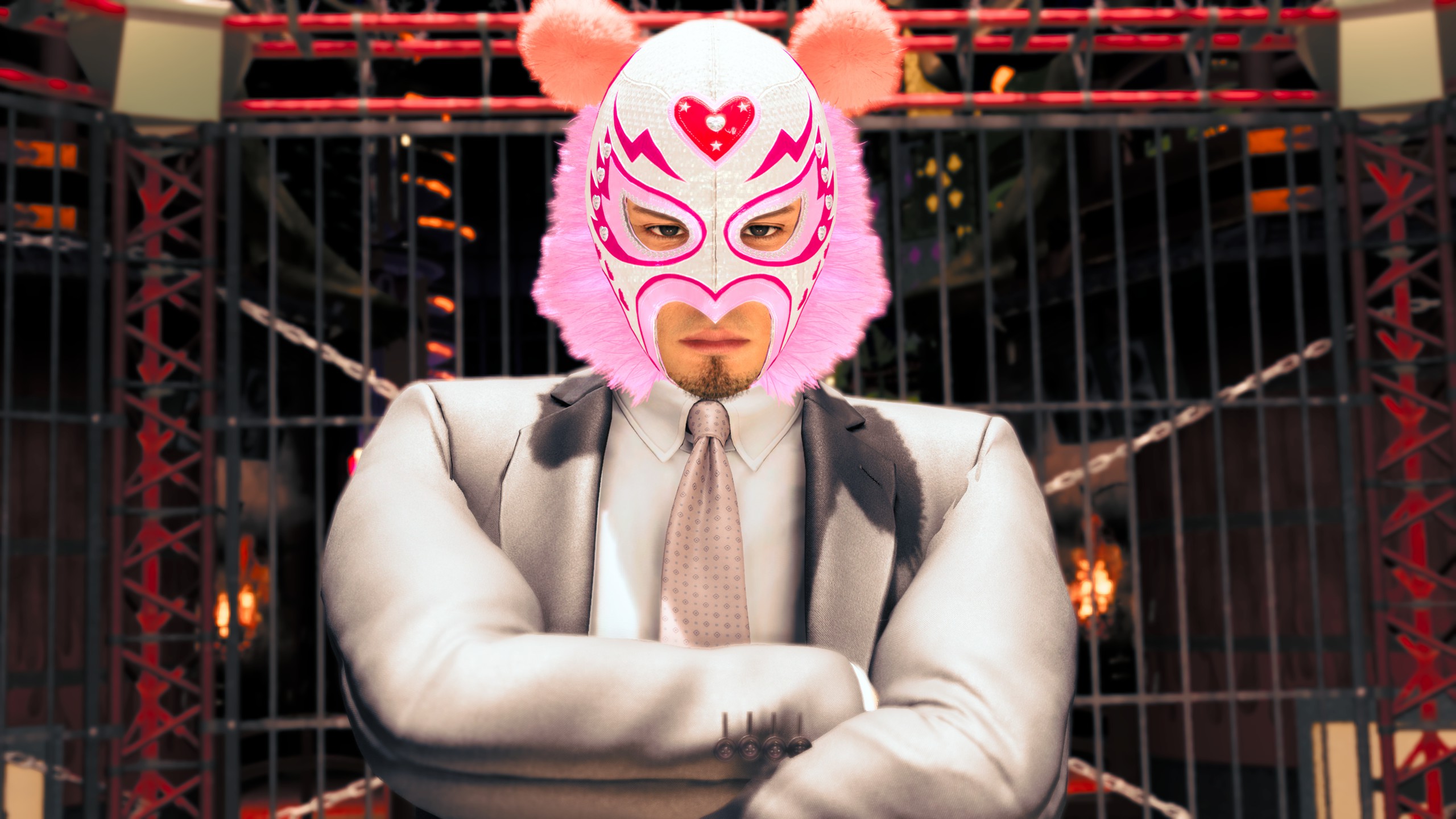Our Verdict
It may be shorter, but it still packs a punch. Like a Dragon: Gaiden does little new, but its story is fascinating and heartbreaking in equal measure.
PC Gamer's got your back
What is it? A Yakuza side-story, set during the events of Yakuza: Like a Dragon.
Release date November 8, 2023
Expect to pay $50/£45
Developer Ryu Ga Gotoku Studio
Publisher Sega
Reviewed on Ryzen 7 3700X, 32GB RAM, RTX 3080Ti
Steam Deck TBA
Link Official site
The Like a Dragon series—Yakuza, as it was previously known—has always been economical with its reuse of assets and features. Even major new releases recycle old locations and minigames alongside whatever new features they also add. Like a Dragon Gaiden: The Man Who Erased His Name, though, is not a 'major' release. It's a sidestory—one that bridges the gap in protagonist Kiryu's story between Yakuza 6 and the upcoming Like a Dragon: Infinite Wealth.
As a result, it's shorter and less ambitious than a main series entry. There's very little here that feels new. The action is predominantly in Sotenbori—the series' take on Osaka's Dōtonbori district, used frequently in previous games. The minigames are a tried and true collection of Yakuza classics, from mahjong to karaoke to the return of pocket circuit racing. There is one new location, The Castle—an absurd offshore getaway for rich hedonistic assholes. In practice, though, it's just a hub for the battle arena and a returning handful of gambling minigames.
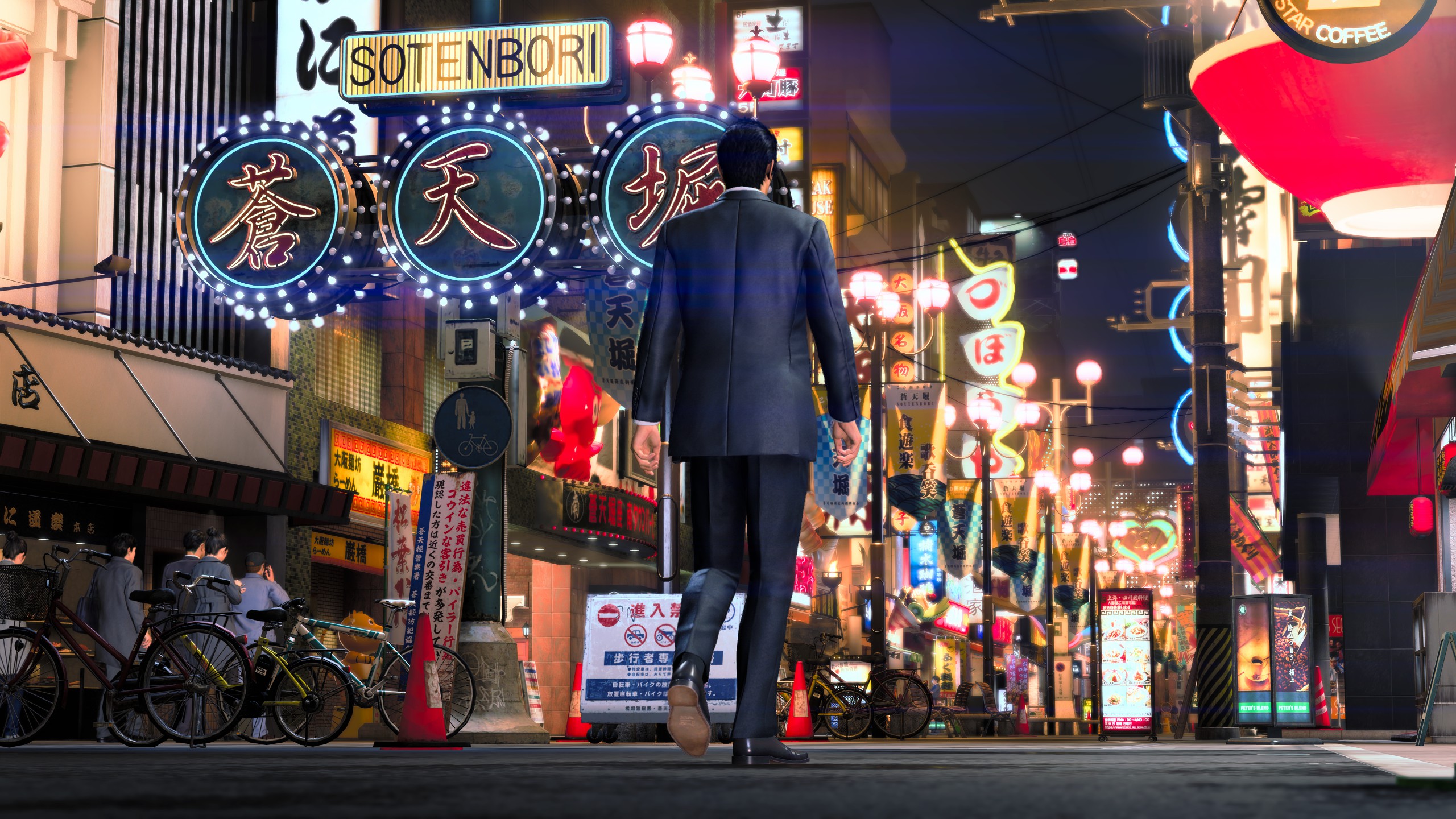
Damn it, though, it still works. The nature of the series—its focus on story and character; on dramatic plot and absurd substories—makes every game something more than the sum of its distractions. A returning location is a chance to see how the world has changed since your last visit. A reused minigame proves a welcome break as the story's tension continues to build. It all feels very comfortable, especially now that the mainline series has moved onto a new lead protagonist and a new turn-based combat system.
Kiryu's return means we're back to the classic brawling that was once a staple of the series. And here, at least, there are some new toys to play with. Kiryu can switch between two combat styles: Yakuza and Agent. The former is your traditional powerhouse moveset—Tiger Drop and all—using the series standard combos of punches, kicks, and street props turned weapons. The latter is more nimble, but also loaded with gadgets. Hold the grapple button, for instance, and you'll fire out Spider, a wrist-mounted rope that can lasso enemies to be flung around or reeled in for a follow-up attack.
Not all of the gadgets are particularly useful. Firefly—a cigarette that is also a bomb—just isn't very effective. Deploying it leaves you vulnerable to attack, and the explosion itself is weak, even upgraded. The best of the bunch is Serpent, aka the rocket shoes. By holding the run button, you can glide across a street fight knocking down enemies in your path. It looks ridiculous and it's also hilariously overpowered, capable of clearing out scores of weaker enemies. In the final missions, as the game throws increasingly absurd numbers of grunts at you, I did a lot of damage by skating back and forth through the pack, only switching to Yakuza style once I was down to a more manageable number of beefier opponents.
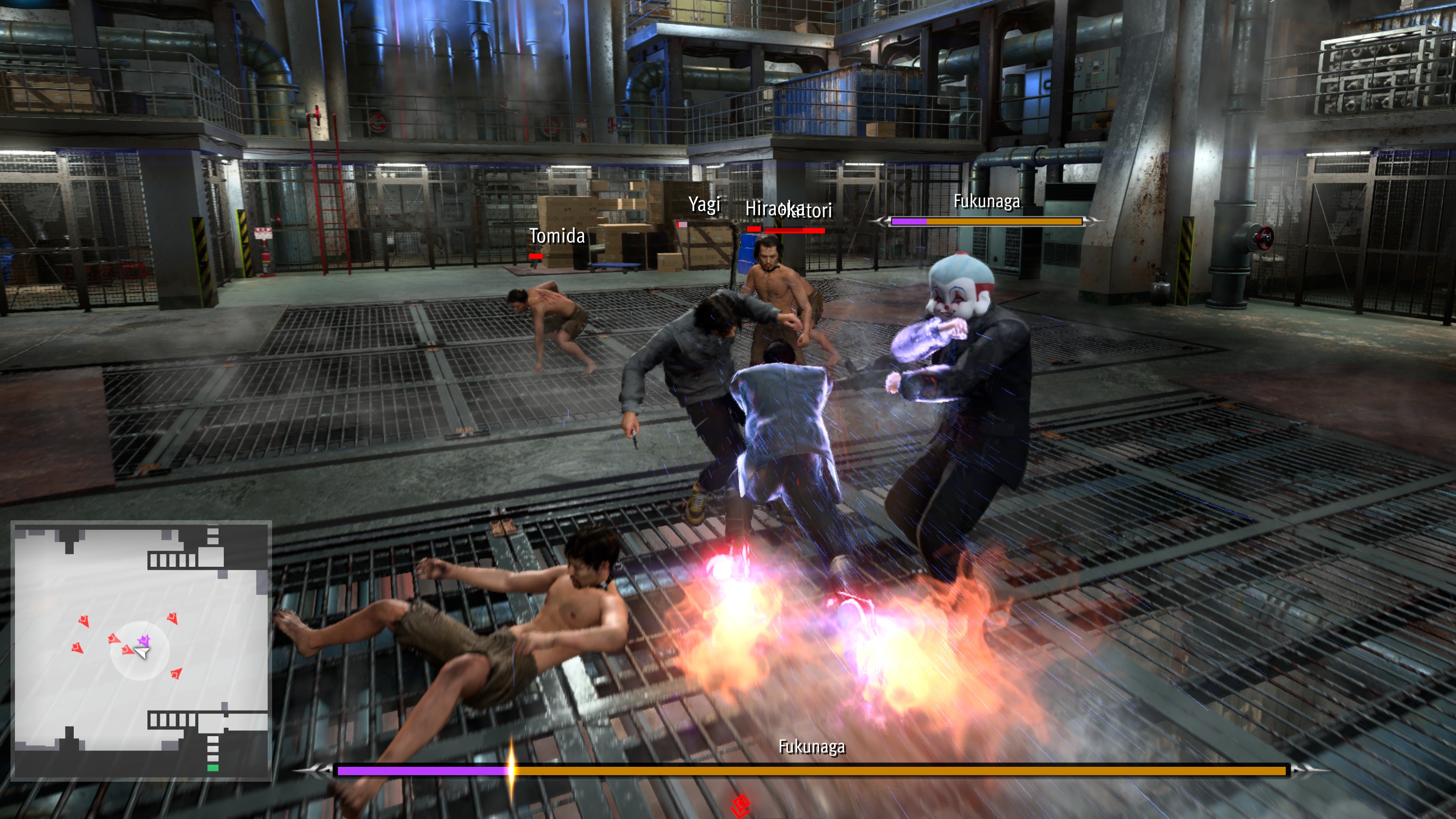
Why is Kiryu now the owner of an arsenal that even James Bond would think is a bit much? It's because he's effectively a secret agent now—a man indentured to a shadowy political faction as part of the deal he struck at the end of Yakuza 6. The story of Like a Dragon Gaiden runs parallel with Yakuza: Like a Dragon, explaining what he's been doing since he faked his own death, and—for the most part—it's a triumph.
Gaiden's greatest strength is that it persuaded me that Yakuza 6's unsatisfying lack of a definitive conclusion was actually the right move.
It's a shorter story than usual—just five chapters—but it achieves a lot in that time thanks to a supporting cast that remains nuanced and intriguing throughout. Kiryu's obligation to the Daidoji Faction is a particularly fascinating wrinkle, testing his sense of honour and the promise he made against his sense of honour and the bonds he still holds dear. It also forces him to go by a new codename, "Joryu", pretending he's dead even to people who very obviously know exactly who he is.
Gaiden's greatest strength is that it persuaded me that Yakuza 6's unsatisfying lack of a definitive conclusion was actually the right move. That, as a character, Kiryu still has more to offer than just a cameo in someone else's story. The heartbreaking emotional gut punch of its conclusion means that, for the first time in a while, I'm excited to see what's next for the old dog and his new tricks.
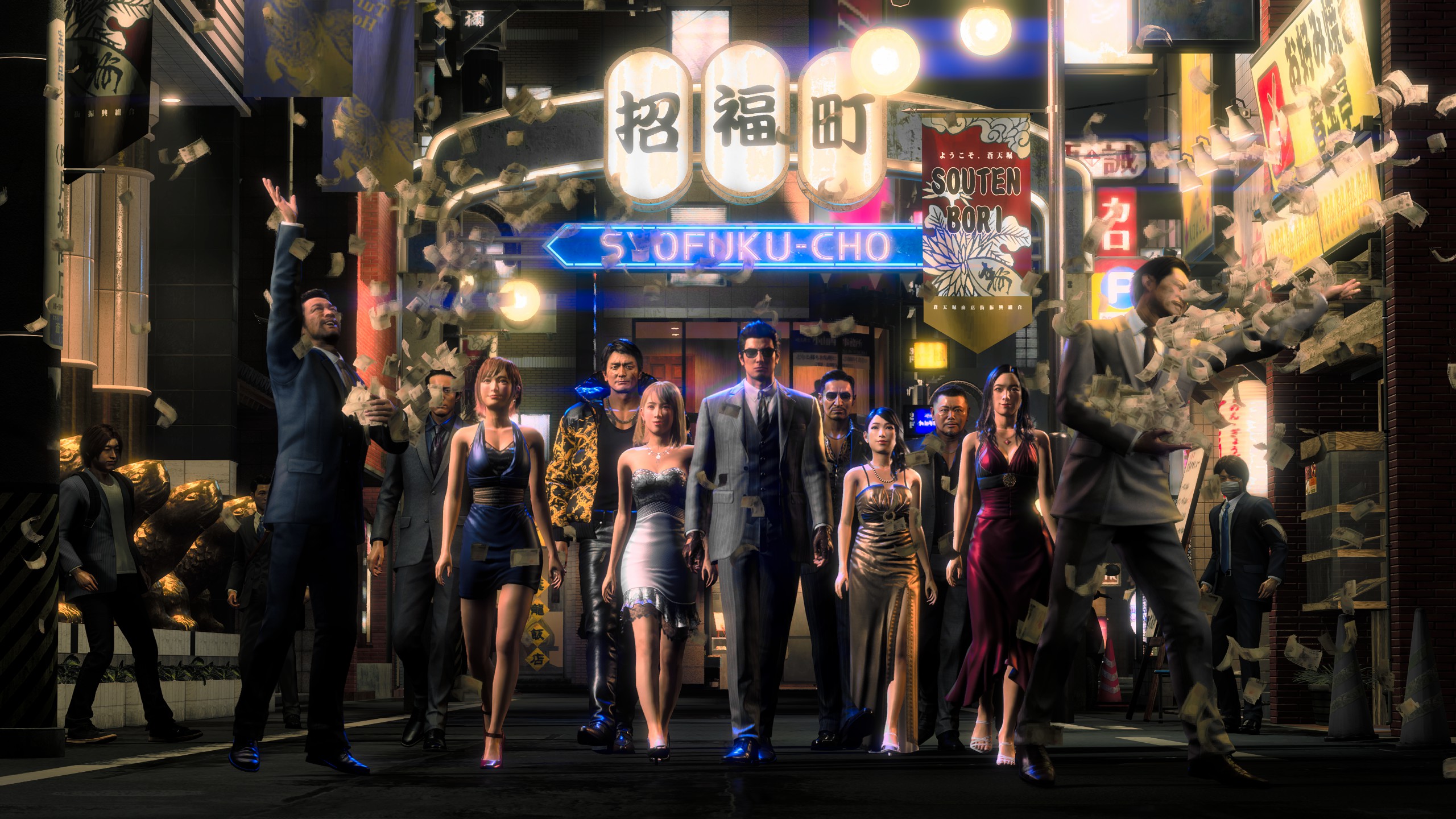
Away from the story, Gaiden gives structure to exploration through the Akame Network—named after the Sotenbori fixer you meet after arriving in the city. This is how Gaiden handles substories—called requests—and how it rewards you for exploration. Completing requests, or ticking off items from the completion list, gives you points. You need both points and cash to upgrade your skills, and any spare points you have can also be spent in Akame's shop. It's a good structure, especially for a smaller game such as this—making everything you do feel like it ties directly to your progression. I do wish there was more done with the substories, though. There's only around 24 requests, and of them only a handful feel as memorable as Kiryu's sidequests in past games.
The battle arena has also been upgraded with the addition of Hell Team Rumble, a team-based mode that requires you to gain allies. As in previous clan builder modes, you can recruit a mixture of new and old faces—yes, even Gary Buster Holmes. It's a light twist on a Yakuza classic, but the natural rhythm of fighting and levelling is easy to lose yourself in. As I said before, it's all very comfortable.
Arguably I'm damning with faint praise, but I do appreciate that Gaiden's scope has led to what feels like more manageable goals. Despite having played every Yakuza game between 50 and 100 hours, I am not a series completionist. I'll go through the story, the substories, and the big side activities. I'll even spend an hour or ten playing mahjong or koi-koi to unwind. But I'm done long before I'll finish the battle arena or any of the series' other major timesinks.
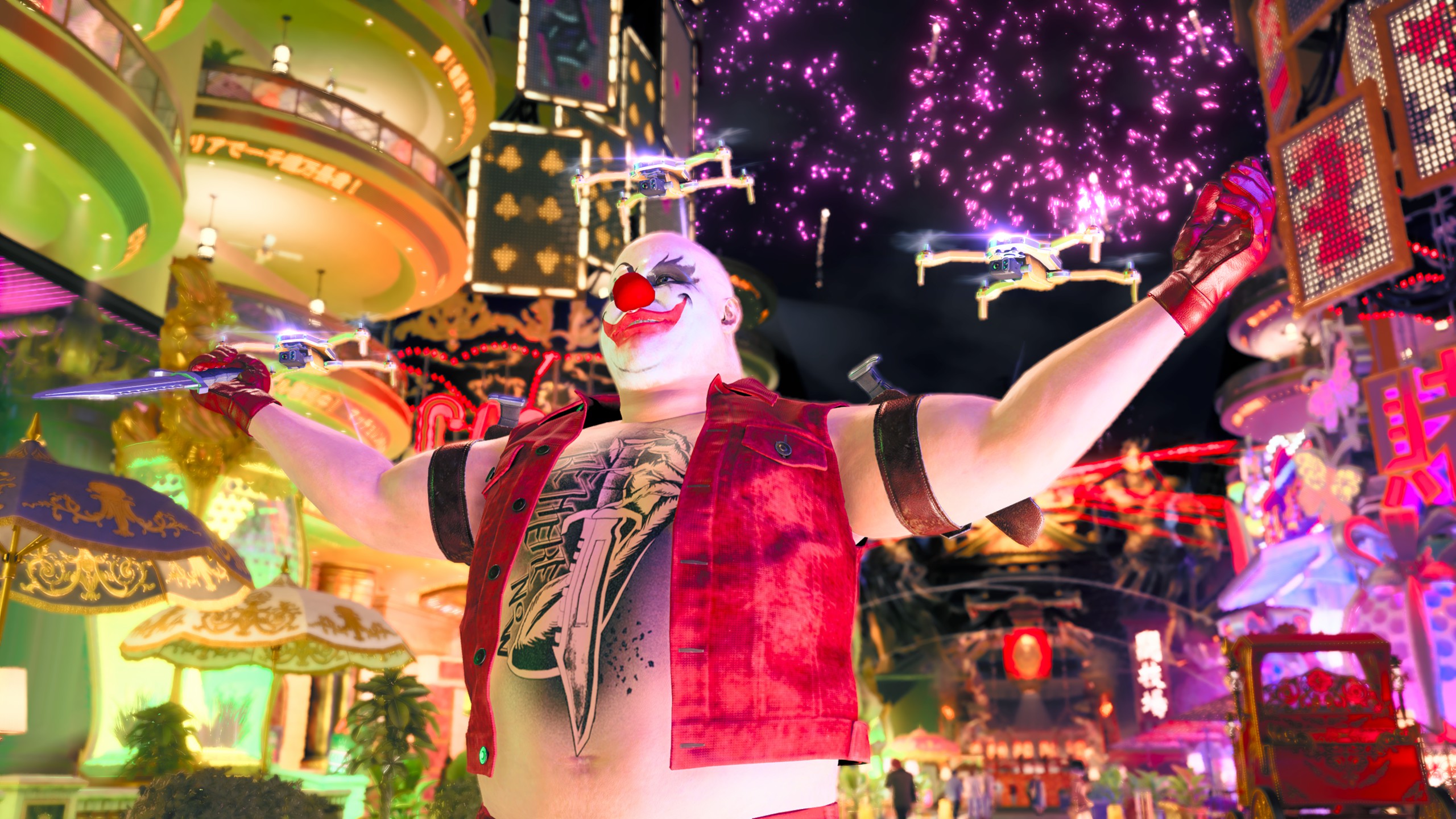
Gaiden feels like a sample platter of series classics. 25 hours in, I've already cleared the story, most of the substories, and a good chunk of the arena battles. I'm levelling up my team in preparation to take out the four kings—a sidestory that pits you against the very best of the arena's fighters. I'm working through pocket circuit races almost despite myself. Even condensed, there's enough here to keep me busy until Infinite Wealth releases in January.
It does have to be noted that this is a $50 release that, ultimately, offers much less than any other game in the series. In isolation, it's a reasonable price for a game that I will probably put well over 30 hours into, but if you're a newcomer, there's better value elsewhere. For $10 more you can get Yakuza: Like a Dragon, an absurdly expansive JRPG that I played for over 100 hours. For $20, you can get Yakuza 0, arguably still the highpoint of the series and the perfect entrypoint for new players.
As a fan, though, I don't really begrudge Gaiden's price or its compromises. It still offers tens of hours of entertainment, and, most importantly, it's a compelling new chapter for the series' original protagonist. If you're at all invested in Kitryu's story, it's damn near essential.
It may be shorter, but it still packs a punch. Like a Dragon: Gaiden does little new, but its story is fascinating and heartbreaking in equal measure.

Phil has been writing for PC Gamer for nearly a decade, starting out as a freelance writer covering everything from free games to MMOs. He eventually joined full-time as a news writer, before moving to the magazine to review immersive sims, RPGs and Hitman games. Now he leads PC Gamer's UK team, but still sometimes finds the time to write about his ongoing obsessions with Destiny 2, GTA Online and Apex Legends. When he's not levelling up battle passes, he's checking out the latest tactics game or dipping back into Guild Wars 2. He's largely responsible for the whole Tub Geralt thing, but still isn't sorry.
